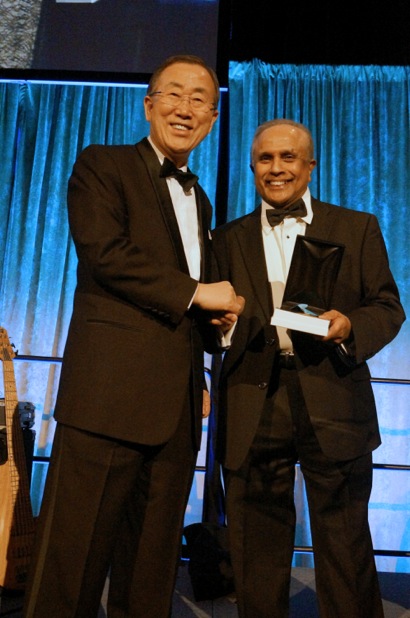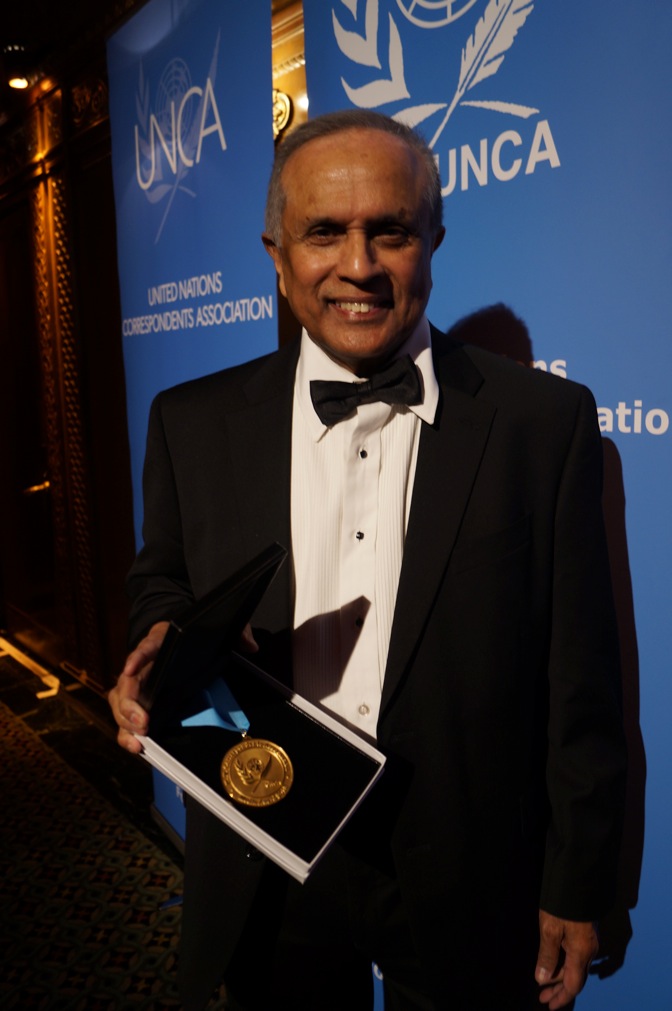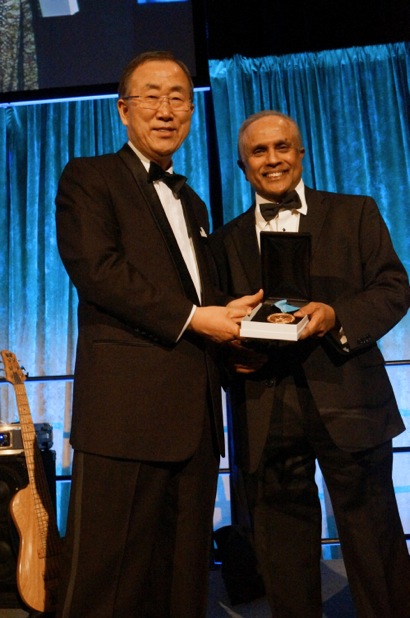 Al Haj A.M.A. Azeez, one of the rare Muslim intellectuals of his generation was a scholar, a writer, an innovative thinker and an educationist with a sharp and perceptive mind.
Al Haj A.M.A. Azeez, one of the rare Muslim intellectuals of his generation was a scholar, a writer, an innovative thinker and an educationist with a sharp and perceptive mind.
When he quit the elitist and prestigious Ceylon Civil Service (CCS) to take over Zahira College, Colombo, back in 1948, he sacrificed a potentially bright professional career in the cause of his community. If Al Haj T.B. Jayah, the first Principal, laid the foundation for Zahira, Azeez built the super-structure. The monumental achievements of Zahira in its heyday prompted a former Sri Lankan President to describe it as “one of the greatest public schools in our country”.
Azeez died 25 years ago – on November 24, 1973 – at the age of 62. But his enduring intellectual legacy lives on. The first Muslim to enter the CCS, his contribution to Muslim education was immeasurable both in terms of quality and quantity.
As Principal of Zahira – the country’s foremost institution serving the educational needs of Muslims – Azeez was far ahead of his time. But he died long before he could see his ultimate vision of Zahira as a “radiating centre of Islamic thought and culture”. A memory etched in the minds of most Zahirians is Azeez standing on the Ghaffoor Hall stage every single Monday morning, religiously reading from the Holy Quran and winding up his weekly sermons by proudly recounting the achievements of Zahirians the past week. The academic and athletic glories under Azeez were legion: the first student to win the Queen’s Cup for rifle shooting, the largest number of Zahirians to enter the University, winners of the Tarbat Shield for soccer and public schools championship in wrestling – and it went on and on week after week.
When Azeez came to Zahira, the Muslims were lagging far behind in higher education – in Arts, Medicine and Sciences. Just as Britain was once dismissed as a “nation of shopkeepers”, the Muslim community was being offered a back-handed compliment as a community of businessmen.
But Azeez wanted the community to go far beyond trade, commerce and industry. As a man of vision, he knew the community was in crying need of professionals, including doctors, engineers, writers, scientists, civil servants, architects, diplomats, scholars, journalists and teachers.
Zahira’s remarkable academic achievements were mostly during the Azeez era. The seemingly insurmountable barrier was broken in 1958 when a record number of Zahirians – nine in all – gained entrance to the then University of Ceylon at Peradeniya outdistancing some of the leading public schools in the country.
In the same year there were two Zahirians who gained admission to Engineering Faculty bringing the total to 11. It was Azeez’s – and Zahira’s – shining hour. Zahira’s achievements eventually lasted for decades, as more and more Zahirians went onto excel both in the life of the community and the nation. To single them out by name would be unfair to many who brought glory to Zahira – in silence. As Zahira continued its string of academic successes, 14 Zahirians made it to the various University Faculties in 1959, and 15 each in 1960 and 1961. During the Azeez era, more than 75 students gained admission to Universities: a credible achievement at a time when the country’s student population was far less than what it is now.
The Zahirians maintained a high profile at the University Campus at Peradeniya in the 1950s and 1960s. The editor of the University Sports Magazine in 1960-1961 was a Zahirian. So was the editor of the University Muslim Majlis magazine.
At a popular radio quiz show matching the intellectual wits of the compere against the contestants, the only one to crack the jackpot – a minor fortune of Rs. 1,000 at the time – was a first year Zahirian who beat a slew of professors and lecturers lined up on stage at the University Arts Theatre poised to grab the prize money and display their intellectual prowess. But the Zahirians who entered the University in the late 1950s and early 1960s did not confine themselves only to intellectual pursuits.
The 1958 batch of Zahirians produced a University captain of boxing at Peradeniya, a two time winner of the first-ever “Mr. Campus” physique contest, a captain of wrestling and a captain of athletics in the halls of residence.
Collectively, they helped Marrs Hall win the annual Gold Cup for exceptional all-round athletic performance, an achievement whose celebrations reverberated throughout the Peradeniya campus. To be introduced as a Zahirian at that time was a moment of pride and glory. These were all Zahirians nurtured and bred in the Azeez era.
As in innovator, Azeez brought fresh ideas to Zahira. Just after a tour of the United States, where he visited several schools and universities, Azeez set up a Students Council at Zahira. The Council, perhaps the first of its kind at that time, met every fortnight to interact with the principal, the deputy principal and the vice principal.
Azeez, who was taking his students into his confidence, not only entertained ideas and suggestions but was also receptive to complaints. Azeez also encouraged the publication of a monthly college newsletter – cranked out on a Gestetner machine – to tap the latent writing skills of Zahirians.
Outside Zahira, Azeez fathered the Ceylon Muslim Scholarship Fund and the All-Ceylon YMMA Conference, two of his other legacies to the Muslim community. In public life, he was appointed Senator in 1952 and was bestowed with the title of Member of the British Empire (MBE). At the same time, he was a member of the Public Service Commission (PSC) and was also elected to the University Senate. In national politics, he was a member of the working committee of the United National Party, only to quit in 1956 over the Official Language Bill.
But despite his significant achievements in public life, Azeez will be best remembered for the lasting monument he assiduously built for his community: Zahira.
(Thalif Deen was a student of Zahira College, Colombo during the Azeez era. He graduated with a Bachelor’s Degree in Economics from the University of Ceylon at Peradeniya in 1962 and a Master’s Degree in Journalism from Columbia University in New York. A former military editor at Jane’s Information Group in the United States, he works for the Third World news agency Inter Press Service (IPS) at the United Nations in New York. He has won many awards in Journalism and now heads the IPS Agency).
IPS UN Bureau Chief Strikes Gold at Annual Awards Ceremony 
Thalif Deen, UN Bureau Chief for Inter Press Service (IPS) news agency and Regional Director North America, won one of the highest honours for excellence in UN reporting at the annual awards ceremony hosted by the UN Correspondents’ Association (UNCA) in New York.
Deen shared the top prize, a gold medal, with Reuters UN Bureau Chief Louis Charbonneau, for coverage of the humanitarian and development work of the United Nations. The prize was sponsored by the United Nations Foundation, a non-governmental organisation which is a strong advocate of the world body and its development agenda.
The winners were picked from over 120 entries from journalists worldwide. Last year, Deen was part of an IPS team that won the gold for reporting on the global environment. The annual UNCA awards go back to 1992. Deen won a bronze medal in 1997, sharing the award with the Washington Post, and received a honourable mention for his UN coverage in 1996.
A former senior editorial writer on the Hongkong Standard and Military Editor
 Middle East/Africa at Jane’s Information Group, Deen was a one-time UN correspondent for Asiaweek, Hongkong and Jane’s Defence Weekly London. A former staffer of the UN Secretariat and twice a member of the Sri Lanka delegation to the General Assembly sessions, he is a Fulbright scholar with a Master’s Degree in Journalism from Columbia University, New York.
Middle East/Africa at Jane’s Information Group, Deen was a one-time UN correspondent for Asiaweek, Hongkong and Jane’s Defence Weekly London. A former staffer of the UN Secretariat and twice a member of the Sri Lanka delegation to the General Assembly sessions, he is a Fulbright scholar with a Master’s Degree in Journalism from Columbia University, New York.
The award ceremony, which took place December 18, was followed by a black-tie dinner at the Cipriani Restaurant and attended by over 600 guests, including UN ambassadors, senior UN officials, journalists, New York city’s glitterati and A-list celebrities in show business.
The Correspondents’ Association also gave two special awards: one to Hollywood movie icon Michael Douglas — the Global Citizen of the Year award — for his commitment to nuclear disarmament, and to singer, musician and song writer Stevie Wonder — the Global Advocate of the Year Award — for his commitment to humanitarian causes.

Thalif Deen with UN Secretary-General Ban Ki-moon at the award ceremony in New York. (Picture by Lusha Chen)
 Al Haj A.M.A. Azeez, one of the rare Muslim intellectuals of his generation was a scholar, a writer, an innovative thinker and an educationist with a sharp and perceptive mind.
Al Haj A.M.A. Azeez, one of the rare Muslim intellectuals of his generation was a scholar, a writer, an innovative thinker and an educationist with a sharp and perceptive mind.

 Middle East/Africa at Jane’s Information Group, Deen was a one-time UN correspondent for Asiaweek, Hongkong and Jane’s Defence Weekly London. A former staffer of the UN Secretariat and twice a member of the Sri Lanka delegation to the General Assembly sessions, he is a Fulbright scholar with a Master’s Degree in Journalism from Columbia University, New York.
Middle East/Africa at Jane’s Information Group, Deen was a one-time UN correspondent for Asiaweek, Hongkong and Jane’s Defence Weekly London. A former staffer of the UN Secretariat and twice a member of the Sri Lanka delegation to the General Assembly sessions, he is a Fulbright scholar with a Master’s Degree in Journalism from Columbia University, New York.

